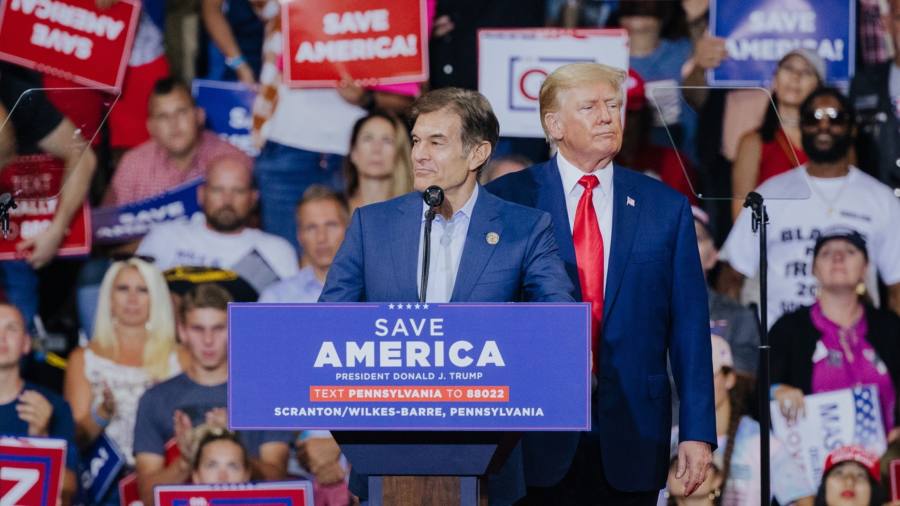
American politics has observed a certain rhythm since the end of the cold war. A president is elected, attempts a major piece of legislation or two, incurs a hostile reaction and loses the first midterm elections. Bill Clinton (1994), Barack Obama (2010) and Donald Trump (2018) all know the routine. George W Bush does not but he had lots of post-9/11 goodwill on his side in 2002.
So if, as polls suggest, Joe Biden’s Democrats lose one or both houses of Congress on November 8, it will not by itself spell a historic Republican realignment. It will not assure the GOP of the White House in 2024. Though Biden was slow to see that inflation was a public concern, it will not even mean that his party ran a terrible campaign. There is a cycle at work, and it is hard to buck.
What a Republican Congress will do is change Washington. Biden, who has been a prolific legislator, with bills on infrastructure and social spending to his name, will see his domestic agenda slow and, perhaps, end. (He hopes, for example, to strengthen abortion rights through statute).
Republicans will neuter the inquiry into the Capitol siege, and launch new ones of their own into Democratic scandals, real or imagined. America’s episodic debt-ceiling saga might also return for another instalment. In return for concessions in other areas, a Republican Congress can withhold permission to raise the limit of federal borrowing. This is disruptive enough in normal times. At an already fraught moment in world financial markets, it carries an extra danger.
Thanks to bipartisan revulsion of Russia’s war on Ukraine, and cross-aisle votes on a few issues, some of the poison has drained out of Congress of late. Expect it to seep back in. There is no guarantee, as winter bites and the economy falters, that even the consensus over Ukraine will survive. The democratic world must hope that it does. Geopolitically, no less than financially, the stakes of these midterms could hardly be higher.
There is another reason why foreign audiences will be parsing the midterm results. He is not on a single ballot, but Donald Trump hovers over these elections far more than anyone who is. If candidates bearing the stamp of the former president do well, his already strong chances of winning the Republican nomination in 2024 will go up. Otherwise — and his record as an endorser is mixed — GOP donors and apparatchiks, if not the base, will cast around for an alternative, such as Florida governor Ron DeSantis. Or, at least, that is the hope.
It is a hope that should be kept in check. Trump is already a provable electoral drag on the Republicans. He led them to a midterm rout four years ago and lost the White House in 2020. His approval rating as president was consistently poor. And still activists love him while the establishment, whatever its private qualms, indulge him. It is entirely possible that Trump will cost his party lots of votes at the midterms and still emerge unscathed.
He has a habit of endorsing candidates and then disowning them when it suits him. For instance, if Mehmet Oz, that purveyor of quack science, fails to become senator for Pennsylvania, expect him to be written off as insufficiently Maga. The same is true of JD Vance in Ohio. If Brian Kemp does not hold on to the governorship of Georgia (another key state in 2024), Trump will blame it on his deviation from the populist path. It is the nature of political cults to interpret real-world information to confirm existing biases. Bad health, criminal charges: these things might derail Trump before 2024. The results on November 8, whichever way they go, are unlikely to be as decisive.